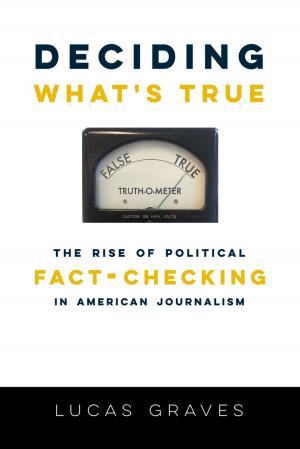Transforming America
Politics and Culture During the Reagan Years
Nonfiction, Social & Cultural Studies, Social Science, Sociology, History, Americas, United States| Author: | Robert M. Collins | ISBN: | 9780231511308 |
| Publisher: | Columbia University Press | Publication: | November 28, 2006 |
| Imprint: | Columbia University Press | Language: | English |
| Author: | Robert M. Collins |
| ISBN: | 9780231511308 |
| Publisher: | Columbia University Press |
| Publication: | November 28, 2006 |
| Imprint: | Columbia University Press |
| Language: | English |
By the end of the 1980s, the "malaise" that had once pervaded American society was replaced by a renewed sense of confidence and national purpose. However, beneath this veneer of optimism was a nation confronting the effects of massive federal deficits, a reckless foreign policy, AIDS, homelessness, and a growing "cultural war."
In Transforming America, renowned historian Robert Collins examines the decade's critical and controversial developments and the unmistakable influence of Ronald Reagan. Moving beyond conventional depictions that either demonize or sanctify Reagan, Collins offers fresh insights into his thought and influence. He portrays Reagan as a complex political figure who combined ideological conservatism with political pragmatism to achieve many of his policy aims. Collins demonstrates how Reagan's policies helped to limit the scope of government, control inflation, reduce the threat of nuclear war, and defeat communism. Collins also shows how the simultaneous ascendancy of the right in politics and the left in culture created a divisive legacy.
The 1980s witnessed other changes, including the advent of the personal computer, a revolution in information technology, a more globalized national economy, and a restructuring of the American corporation. In the realm of culture, the creation of MTV, the popularity of self-help gurus, and the rise of postmodernism in American universities were the realization of the cultural shifts of the postwar era. These developments, Collins suggests, created a conflict in American society that continues today, pitting cultural conservatism against a secular and multicultural view of the world.
Entertaining and erudite, Transforming America explores the events, movements, and ideas that defined a turbulent decade and profoundly changed the shape and direction of American culture and politics.
By the end of the 1980s, the "malaise" that had once pervaded American society was replaced by a renewed sense of confidence and national purpose. However, beneath this veneer of optimism was a nation confronting the effects of massive federal deficits, a reckless foreign policy, AIDS, homelessness, and a growing "cultural war."
In Transforming America, renowned historian Robert Collins examines the decade's critical and controversial developments and the unmistakable influence of Ronald Reagan. Moving beyond conventional depictions that either demonize or sanctify Reagan, Collins offers fresh insights into his thought and influence. He portrays Reagan as a complex political figure who combined ideological conservatism with political pragmatism to achieve many of his policy aims. Collins demonstrates how Reagan's policies helped to limit the scope of government, control inflation, reduce the threat of nuclear war, and defeat communism. Collins also shows how the simultaneous ascendancy of the right in politics and the left in culture created a divisive legacy.
The 1980s witnessed other changes, including the advent of the personal computer, a revolution in information technology, a more globalized national economy, and a restructuring of the American corporation. In the realm of culture, the creation of MTV, the popularity of self-help gurus, and the rise of postmodernism in American universities were the realization of the cultural shifts of the postwar era. These developments, Collins suggests, created a conflict in American society that continues today, pitting cultural conservatism against a secular and multicultural view of the world.
Entertaining and erudite, Transforming America explores the events, movements, and ideas that defined a turbulent decade and profoundly changed the shape and direction of American culture and politics.















